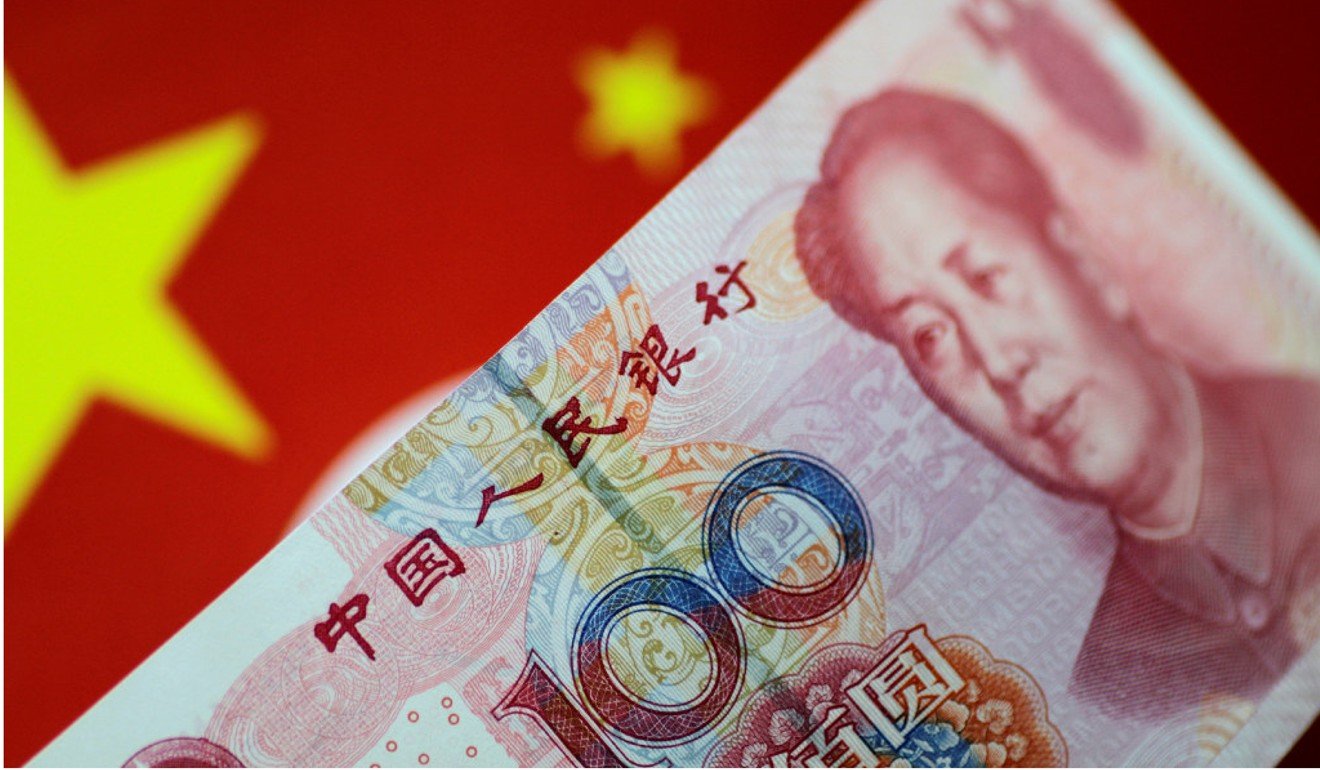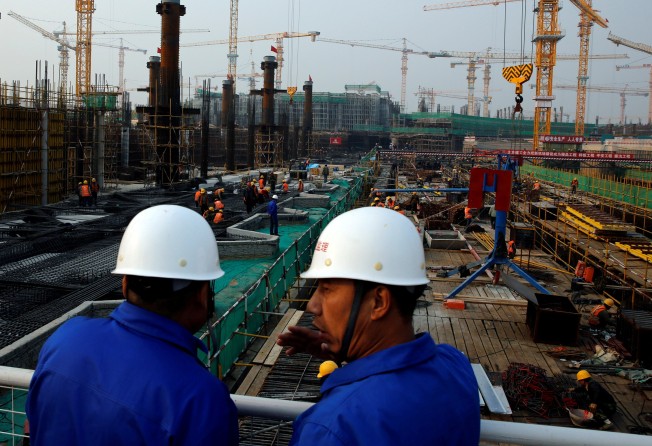
Will Xi Jinping’s second term bring ‘new cycle’ for the economy?
Now that the president has cemented his grip on power, some economists say China will turn a corner towards stable and more sustainable growth

A growing number of economists are joining the chorus forecasting the arrival of a stronger Chinese economy under President Xi Jinping – a stark contrast from a year ago, when China was seen as a source of instability for the world.
Although Beijing has delivered scant evidence that it is taming its debt mountain, the optimists are starting to make their voices heard over talk of a hard landing or crisis in China’s growth narrative.
Moody’s Investors Service, the rating agency that five months ago downgraded China’s sovereign rating, said in a report last week that Xi’s second-term power consolidation “could advance the process of economic reform and rebalancing”.
That view was echoed by Michael Pettis, a long-time observer of the Chinese economy, who told the South China Morning Post that a strong leader would help China to clean up its debt mess and put growth on a sustainable track.
State-backed investment bank China International Capital Corp meanwhile wrote in a note on Monday that the bears were wrong “again and again” about China because they did not understand the country’s vast potential to grow. It said fears about a bust in China’s debt-fuelled growth were overblown.
Qiu Xiaohua, who headed China’s National Bureau of Statistics from 2005 to 2006, is the latest to predict the US$12 trillion economy is about to turn a corner.
“A new cycle and phase – characterised by stable and high-quality growth – is coming to us,” Qiu, who is now chief economist at Minsheng Securities, said at a ceremony to launch the International Monetary Fund’s latest China Economic Outlook on Tuesday in Beijing.
Qiu said the country’s “political advantages” had helped it to avoid a financial meltdown, noting that the doomsayers often neglected non-market factors in analysing China’s economy.
“An important reason why foreign investors tend to misjudge the Chinese economy or take a pessimistic view is that they don’t look into the close relations between the country’s politics and economics,” Qiu said. Its bureaucratic system, “from the central government to the villages”, is expected to run more efficiently now that Xi has cemented his grip on power, he added.
Qiu’s political career ended abruptly in 2006 when he was investigated for corruption then jailed for bigamy. He was released in 2008 and joined the private sector.

The economic optimists have been emboldened by this year’s accelerating growth figures, and by Beijing managing to halt a 22-month exodus of cash in September.
Monthly indicators such as the purchasing manager’s index have also pointed to strong momentum. The official PMI for October fell by 0.8 percentage points from a five-year high of 52.4 the previous month – meaning it has been in expansionary territory for nearly a year. The separate Caixin manufacturing PMI released on Wednesday stayed unchanged at 51, marking expansion of activities for five months in a row.
Xi dropped a long-term gross domestic product growth target in his political report delivered to the 19th party congress last month, turning the focus to quality of growth instead of speed of expansion.
At the same time, economists have been busy revising up their forecasts for China growth. The IMF last month added 0.2 percentage points to its forecast for 2017, taking it to 6.8 per cent, and it revised up the 2018 growth forecast by 0.3 percentage points to 6.5 per cent.

Zhang Longmei, the IMF’s resident representative in China, said the country now had a “good opportunity” to tackle its structural problems – from corporate debt to financial fragility.
“The core challenge remains its excessive reliance on debt for growth,” she said.
But Wei Benhua, former deputy director of the State Administration of Foreign Exchange, said Beijing had enough assets to repay its debt.
“Guizhou province has a very high level of government debt, but all its debts could be repaid if it sold just one company – Kweichow Moutai,” Wei said. Kweichow Moutai, China’s top liquor maker partly owned by the Guizhou government, has a market capitalisation of more than US$100 billion.
However, although profitability of Chinese state companies is improving – and even state banks are reporting strong earnings – doubts about the sustainability of the Chinese economy remain.
Zhou Xiaochuan, the country’s veteran central bank governor, warned two weeks ago that too much optimism could lead to a “Minsky moment”, a term named after US economist Hyman Minsky that refers to a sudden collapse of asset prices after long periods of prosperity or growth.
And Kyle Bass, the founder of Hayman Capital who predicted a bank crisis in China and a 30 per cent devaluation of its currency in early 2016, said last week that Xi “will be blamed for recklessly building the Chinese economy on a foundation of sand”, Bloomberg reported.